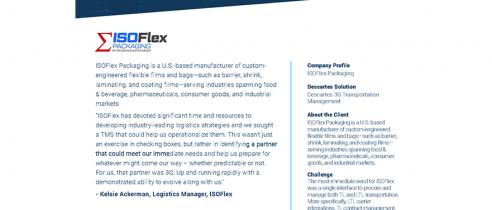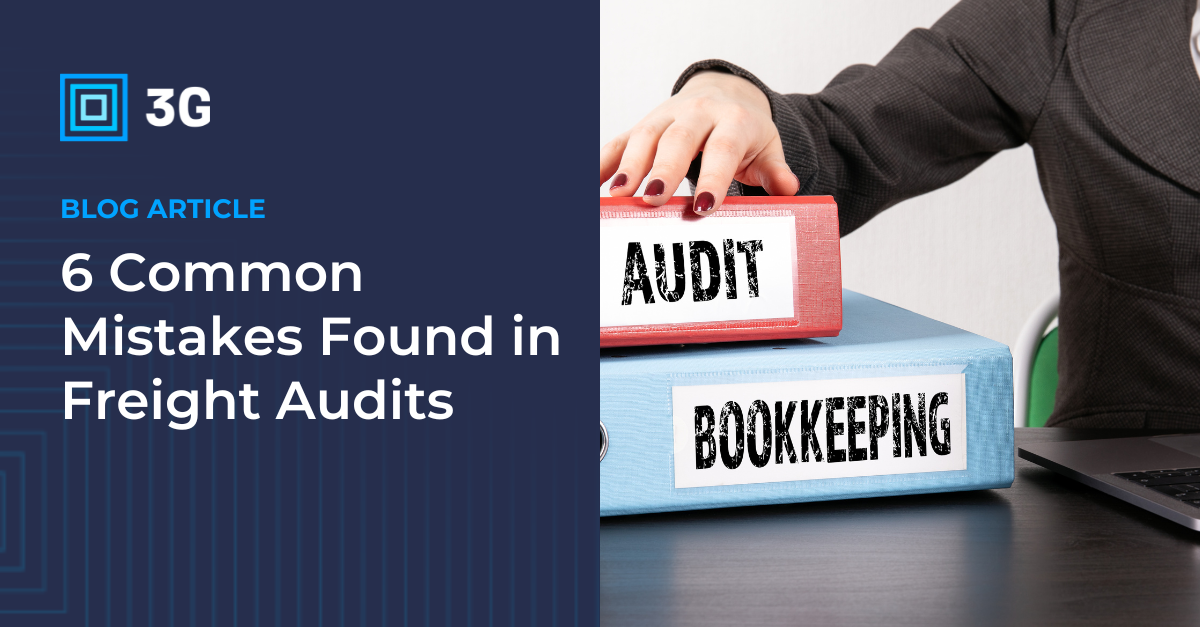Improving over-the-road logistics has always been a battle in the transportation industry, requiring constant innovation and vigilance to improve on-time delivery, reduce fuel consumption, and employ other cost mitigation strategies. Unfortunately, the invoicing process is often just as complicated as route optimization.
If you want to realize the full potential of greater efficiency and improved profit margins, you have to look at every aspect of your business, beyond just shipping logistics. Some of the biggest — and most costly — operational mistakes happen during invoicing. Freight audits are a key strategy for identifying and eliminating waste directly from the finance department. In fact, incorporating these audits into your operation can realize cost savings as substantial as upgrading your logistics capabilities would.
What is a freight audit?
A freight audit is a meticulous examination of freight bills to confirm their accuracy and ensure they align with the actual services provided. Whereas shipping audits examine the larger operation, freight audits focus on the invoice side of operations. During this process, auditors scrutinize details like shipment weights, distances traveled, and various charges applied to shipments throughout the journey. The primary objectives of a freight audit are to identify any overcharges and to unearth opportunities for cost savings, but it offers a number of other important benefits as well:
- More Accurate Invoicing: A freight audit allows you to verify the accuracy of invoiced amounts before making payments, ensuring each charge is correct and justified.
- Greater Carrier Accountability: Auditing freight invoices helps hold carriers accountable to agreed-upon terms and pricing, ensuring higher service quality.
- Deeper Operational Insight: A freight audit can help you glean valuable data on shipping activities and their costs, providing deeper insights into operational workflows, inefficiencies, and potential solutions to better optimize logistics and reduce costs.
- Improved Compliance and Accuracy: Through the detailed verification of invoices against records, freight audits help ensure compliance with shipping regulations and contractual agreements.
The 6 Most Common Mistakes Uncovered in Freight Auditing and Payment
Conducting a freight audit provides a look under the hood of your entire operation, allowing you to root out foundational problems — or even carriers making unnecessary, potentially fraudulent changes to shipping data. Catching these six common mistakes during a freight audit can completely transform your profitability:
- Inaccurate Shipping Classification: Goods are classified according to a standardized freight classification system, which determines the rates charged by carriers. Misclassification can lead to incorrect billing, either overcharging or undercharging. A freight audit helps ensure each item is correctly classified according to its size, weight, and other characteristics.
- Inaccurate Weights: Weight is one of the biggest factors in determining freight class and overall shipping costs. When the weight of a shipment listed on the bill of lading (BOL) doesn’t match the weight on a carrier’s scale, it results in a reweigh, and each reweigh incurs a fee, which could significantly impact the final invoice.
- Duplicate Invoices: Clerical errors or system glitches can cause vendors to invoice for the same service more than once. Freight audits help catch duplicate invoices to prevent paying for the same service multiple times.
- Incorrect Freight Rates: Freight rates can fluctuate based on fuel costs, demand, and carrier pricing changes. A freight audit ensures the rates charged on invoices align with contracted rates or current market rates, allowing you to correct any discrepancies.
- Tax and Tariff Calculation Errors: Taxes and tariffs are incredibly complex to calculate and vary by geography and product type, potentially creating significant compliance issues and financial discrepancies. A freight audit verifies that all taxes and tariffs are calculated correctly according to applicable laws and agreements.
- Incorrect Surcharges or Accessorial Fees: In large, high-volume operations, mistakes in assessing fuel surcharges, inside delivery, or lift gate services can add up to significant losses for your bottom line. Freight audits can help identify errors or unjustified fees and ensure all additional charges are valid and calculated correctly.
3G: More Than Freight Audit Automation Software
Manual freight audits are as challenging and time consuming as manual route optimization and other labor-intensive logistics streamlining strategies. To reap the most ROI from a freight audit, you need freight audit automation software to make the process easier.
3G is a leading transportation management software platform designed to streamline and optimize every aspect of over-the-road transportation — including freight auditing. Users can easily identify the top 10% of likely errors that comprise the majority of financial discrepancies in shipping invoices, not only enhancing the accuracy of freight audits, but improving their efficiency. In fact, 3G streamlined every aspect of Mohawk Logistics’ invoicing, allowing the company to grow in record time.








